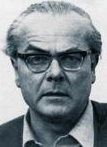
|
|||||||||||||||||||||||||||||||||||||||||||||||||||||
|
The last one I replicated as a Twitter list. If you don't yet have the feature turned on, you'll get a blank page on the last link. Here's a screen shot of what it looks like. Basically you get a flow of all the people I've chosen to put on the Berkeley list. Depending on what the API looks like we'll probably see all kinds of tools for combining and cloning lists. It's a new authority system. The number of lists you appear on is a kind of page-rank. So let's hope Twitter does two things: 1. Provides an open API to crawl this data set. 2. Doesn't pollute it by artificially inflating the rank of friendly press and their industry friends. Stay out of the editorial space and let a healthy ecosystem develop. It's another chance to not screw it up. Some people have said it's somehow related to the Suggested User List but I don't see it at all. This feature is for advanced users, the SUL is for total newbies. Unless Twitter somehow data mines our lists, something they could have done right at the start, it won't have any impact on the newbies' user experience. Update: As you would expect, Scoble is going crrrazy with this feature! My mother's uncle, Arno Schmidt, was a German author who lived between 1914 and 1979. He left a collection of his work to his sister Lucy, my grandmother, and when she died in 1977, the collection was passed to my mother. Legend has it that he gave the collection to his sister because he wanted a backup of his work in the United States.
I've listed our collection of books in a separate post. We're looking for a university in the United States, probably one with a German Studies Department and a library, to take the whole collection. We're not looking to make money from this donation, it's strictly a gift, but we would like to have the materials accessible to the public. Ideally we'd like to work with a university in NY or the Bay Area because that's where our family is. I wanted to make this offer publicly, through my blog, because it seems consistent with my efforts to get our electronic work archived. Here's a chance to learn how it's done with writing created in the mid-20th century. If you are at a university that is interested, either post a comment here, or send me an email at dave dot winer at gmail dot com. Thanks! |
My Projects
"The protoblogger." - NY Times.
"The father of modern-day content distribution." - PC World.
One of BusinessWeek's 25 Most Influential People on the Web. "Helped popularize blogging, podcasting and RSS." - Time.
"The father of blogging and RSS." - BBC.
"RSS was born in 1997 out of the confluence of Dave Winer's 'Really Simple Syndication' technology, used to push out blog updates, and Netscape's 'Rich Site Summary', which allowed users to create custom Netscape home pages with regularly updated data flows." - Tim O'Reilly.
My most recent trivia on Twitter. On This Day In: 2008 2007 2006 2005 2004 2003 2002 2001 2000 1999 1998 1997. |
||||||||||||||||||||||||||||||||||||||||||||||||||||
|
© Copyright 1997-2009 Dave Winer. Previous / Next |
|||||||||||||||||||||||||||||||||||||||||||||||||||||
 Like a bunch of other people I had the
Like a bunch of other people I had the 
